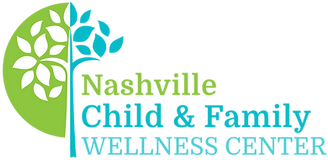Autism testing in Nashville at NCFWC.
According to 2021 data from the Tennessee Autism and Developmental Disabilities Monitoring Network (TN-ADDM), “Although an increasing number of children with ASD in Tennessee (44% of 8-year-olds; 67% of 4-year-olds) are initially evaluated prior to 3 years of age, many children are still diagnosed at later ages (median age of diagnosis was 48 months of age among 8-year-old children with ASD).” If you have been curious about ASD or have felt that a child or loved one may benefit from an evaluation, Nashville Child & Family Wellness’s compassionate staff offers autism testing in Nashville and Franklin by experienced clinicians.


Early Autism Testing
Why is Early Autism Testing Important?
Early testing and diagnosis of autism spectrum disorder (ASD) can have significant benefits for both the individual and their family. Some of the key benefits of early testing for autism include:
Early Intervention
Early diagnosis of ASD can lead to early intervention services, which can help improve outcomes for the child. Research has shown that early intervention can help improve language and social skills, reduce challenging behaviors, and promote better overall development.
Improved Treatment Planning
Early diagnosis allows for earlier development and implementation of treatment plans tailored to the individual's specific needs. Treatment plans can include a range of therapies and interventions, including behavioral therapies, speech and language therapy, occupational therapy, and medication, if needed.
Family Support
Early diagnosis allows families to access support services and resources earlier in the child's development. This can include counseling, support groups, and training on how to support the child's development and navigate the challenges of raising a child with ASD.
Better Long-Term Outcomes
Early diagnosis and intervention can lead to better long-term outcomes for individuals with ASD. Research has shown that individuals who receive early intervention services have improved academic and social outcomes and are more likely to achieve independent living and employment as adults.
Reduced Parental Stress
Early diagnosis and intervention can also help reduce parental stress and anxiety, as families can receive support and guidance in navigating their child's diagnosis and treatment.
Overall, early testing and diagnosis of ASD can have significant benefits for the individual and their family.
What are the signs and symptoms of ASD?
Signs of ASD typically appear in early childhood but may not be recognized until later in development. Some common signs of ASD in children and adolescents include:
- Social Communication Difficulties: Children and adolescents with ASD may have difficulty with social communication, such as making eye contact, using gestures, and understanding social cues. They may also have difficulty with back-and-forth conversations and may lack interest in social interactions.
- Repetitive Behaviors: Children and adolescents with ASD may engage in repetitive behaviors, such as hand flapping, rocking, or lining up objects. They may also have a strong preference for routine and may become upset when routines are disrupted.
- Sensory Issues: Children and adolescents with ASD may have sensory issues, such as sensitivity to certain textures or sounds. They may also seek out certain sensory experiences, such as spinning or jumping.
- Delayed Language Development: Children with ASD may have delayed language development and may not speak as much as their peers. When they do speak, they may use unusual language or have difficulty with conversational turn-taking.
- Lack of Social Play: Children with ASD may not engage in typical social play with their peers and may prefer to play alone or engage in repetitive play.
- Difficulty with Transitions: Children and adolescents with ASD may have difficulty transitioning from one activity to another and may become upset when routines are changed.
It’s important to note that not all children and adolescents with ASD will display all of these signs, and some may display signs that are not listed here. Additionally, some of these signs may also be present in typically developing children, so it’s important to seek an evaluation from a trained professional if you have concerns about your child’s development.
What to expect from the autism testing process at NCFWC?
Autism testing, also known as autism assessment or evaluation, involves a comprehensive evaluation of an individual’s social, communication, and behavioral development to determine if they meet the criteria for an Autism Spectrum Disorder (ASD) diagnosis. The testing process typically involves the following steps:
- Initial Screening: The first step in the testing process is usually a screening to identify any red flags or concerns related to the individual's development. This may involve an interview with the individual or their caregiver or the completion of questionnaires or rating scales.
- Diagnostic Interview: A diagnostic interview with a trained professional, such as a psychologist or psychiatrist is typically conducted to assess the individual. The professional will ask questions about the individual's developmental history, current symptoms, and other relevant factors.
- Standardized Assessments: Standardized assessments, such as the autism diagnostic observation schedule (ADOS), may be used to supplement the diagnostic interview. These assessments involve structured observations of the individual's behavior and interactions and are designed to provide a more objective assessment of autism-related symptoms.
- Developmental & Cognitive Testing: The individual's cognitive and developmental functioning may also be assessed through standardized tests and measures, such as IQ tests and developmental assessments. This can help help differentiate ASD from other potential diagnoses and can help determine the individual's strengths and weaknesses and inform treatment planning.
- Other Assessments: Depending on the individual's specific symptoms and concerns, additional assessments may be conducted to assess factors such as sensory processing, motor skills, and adaptive functioning.
- Feedback & Diagnosis: Following the completion of the evaluation, the professional will provide feedback and, if appropriate, make a diagnosis of ASD. Recommendations for treatment and support will also be provided based on the individual's needs and symptoms.
Overall, the autism testing process involves a comprehensive evaluation of an individual’s development and functioning to determine if they meet the criteria for an ASD diagnosis. The process is typically conducted by trained professionals and may involve a range of assessments and evaluations.
How can therapy benefit children with ASD?
Therapy can be an effective treatment option for individuals with ASD as it can help improve social communication, behavior, and overall quality of life. Some benefits include the following:
- Improved social communication
- Reduced challenging behaviors
- Improved adaptive skills
- Improved academic performance
- Family support
Overall, therapy can be an effective treatment option for individuals with ASD. It’s important to work with a trained professional who has experience working with individuals with ASD and who can tailor the therapy to meet the individual’s specific needs.
Psychiatry
Our psychiatric providers will perform comprehensive evaluations for children, adolescents, and adults for a variety of mental health issues.
Therapy
Providers at Nashville Child and Family Wellness Center are experienced and trained in a wide range of evidence-based modalities.
Neurofeedback
Neurofeedback is a method of retraining electrical activity in the brain in order to alleviate psychiatric symptoms including depression, anxiety & ADHD.
Testing & Assessment
Our team of psychologists provide comprehensive testing and developmental evaluations to help identify and treat a variety of issues.
Nutrition
We provide personalized nutrition counseling to children, adolescents, adults, and families who wish to improve their relationship with food.
Speech & Language
Our speech language therapy and assessments can help people struggling with a variety of oral, expressive, and pragmatic language difficulties.
NCFWC Provides Autism Testing in Nashville and Franklin
Nashville Child and Family Wellness Center offers an array of services that help clients reach their desired outcomes, including testing services.
We offer high quality psychiatric, psychological, and academic testing services to our clients, and then turn this knowledge into a structured treatment plan that is carried out successfully and efficiently by an experienced team of multi-disciplinary specialists.
If you are interested in learning more about our autism and other testing services in Nashville and Franklin, call us at 615-238-9100 or complete a Request for Services Form.
info@nashvillefamilywellness.com

